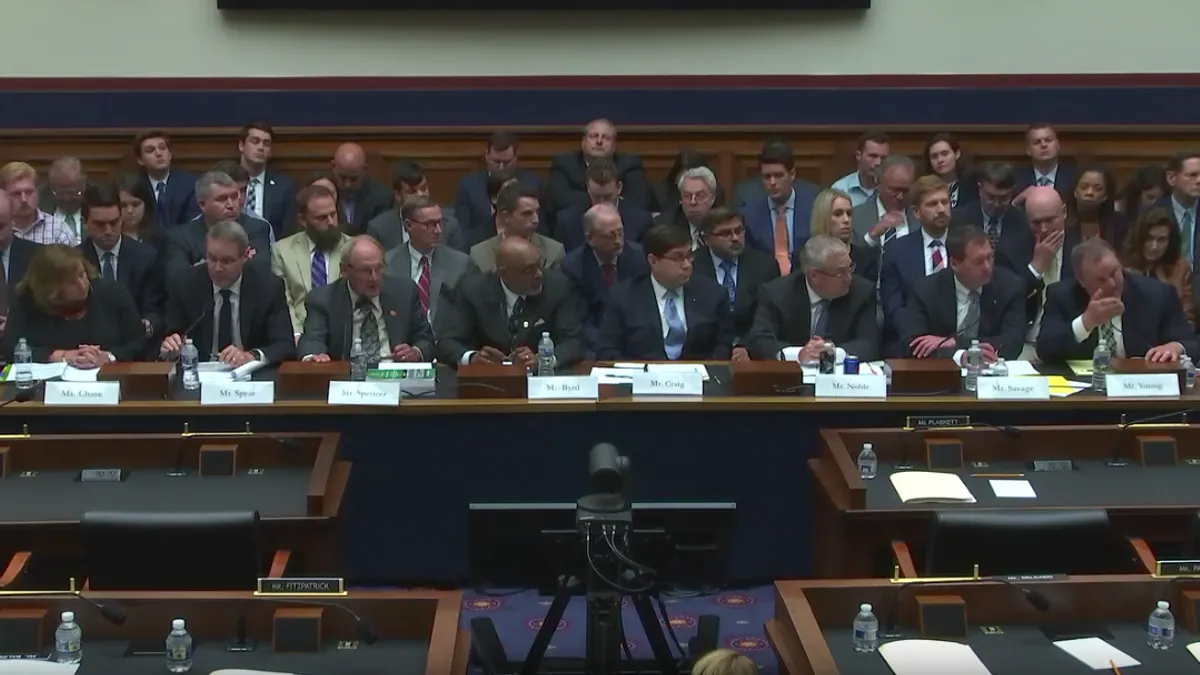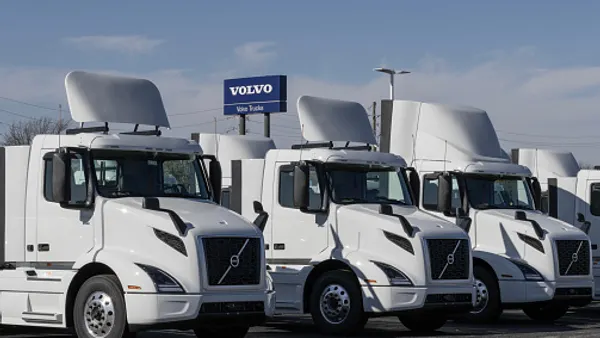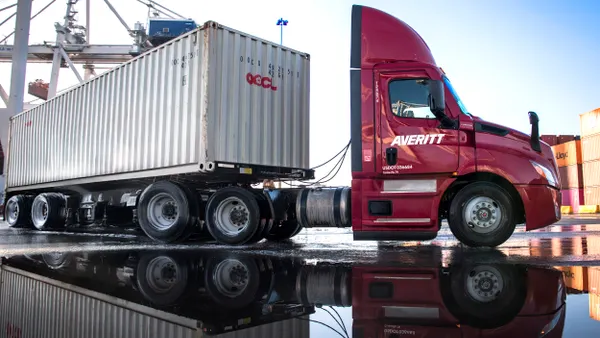Eight witnesses representing various trucking stakeholders — shippers, carriers, brokers and the union — took to Capitol Hill yesterday to talk with lawmakers about the state of the industry. There was not much the witnesses agreed on, as Representative Bruce Westerman, R-Ark., pointed out in his remarks during the House subcommittee on Highways and Transit hearing.
"There’s no end of competing ideas at the table today," Westerman said after pointing out differing opinions on the driver shortage, electronic logging devices (ELDs), hours of service (HOS) and other hot button issues in the trucking community.
Here's a look at some of the areas where opinions diverged.
Younger drivers?
Multiple witnesses on the panel voiced opposition to the idea of lowering the driving age to 18 for commercial truckers traveling across state lines. The commercial driving age is already 18 for intrastate commerce.
"If you’re trying to make things safer the driver age should be higher, not lower," Todd Spencer, the president of the Owner-Operator Independent Drivers Association, told lawmakers.
LaMont Byrd, the director of the Health and Safety Department for the International Brotherhood of Teamsters, said his organization agrees the driver age should not be lowered.
Cathy Chase, the president of Advocates for Highway and Auto Safety, agreed with Byrd and Spencer. Chase's written testimony said teenage drivers "pose a major safety threat," and she cited a 1991 study, which concluded, "Fatal accident involvement rates for drivers of large trucks are found to increase with decreasing driver age."
But American Trucking Associations CEO Chris Spear did not agree, saying 18 to 21-year-olds are already allowed to dive a Class-8 truck in 48 states. Spear said the Fast Act, which would lower the age for drivers, requires ample training for the younger drivers.
"I’d love to know where the opponents on this panel were when those 48 states passed those laws," he said. "But they’re quick to say that federally we shouldn’t do it.”
ELDs and HOS
Last month, a Department of Transportation official said an overhaul of the HOS regulations was one of the most important changes this administration would make to laws governing freight movement. What this change will look like is not yet known, but Secretary of Transportation Elaine Chao has said she wants to increase flexibility for drivers. As the department considers these rules, the industry has differing views on HOS and ELDs, the time-keeping technology used to enforce the rule.
Spencer called ELDs a "monstrous mandate" that actually make roadways less safe by causing more anxiety for drivers. He said he supports the idea of more flexibility.
Chase, however, voiced support for ELDs, saying one of the studies of the mandate found increased HOS compliance as a result. Increasing HOS compliance, she said, can decrease driver fatigue. However, the same study she highlighted also found an increase in unsafe driving behavior, like speeding.
Heavier trailers
Rodney Noble, the senior director for transportation global procurement at PepsiCo, told lawmakers allowing for heavier trucks would allow companies to haul the same amount of freight with fewer vehicles. Fewer trucks on the roadway would decrease the likelihood of an accident, Noble reasoned. Pepsi wants the weight restrictions raised from 80,000 pounds to 91,000 pounds. He said the weight restriction was already higher in Canada.
"In the U.S. we believe that, by allowing more cargo to be carried in fewer vehicles, this pilot program would reduce the growth in the number of trucks on the road," he said in his written testimony.
But Chase argued making trucks heavier would make the wrecks that do happen more dangerous for those involved.
"Bigger and heavier trucks mean bigger problems for safety and infrastructure," she argued.
Next steps
The subcommittee held the hearing as part of its efforts to reauthorize federal surface transportation programs and policies. It's not immediately clear what kind of impact this hearing will have on these efforts or if lawmakers were able to walk away with any sense of clarity. When Rep. Westerman asked if there were any regulatory changes the panel would agree on there was one suggestion: More training for truck drivers.
But the trucking community is more likely to see changes come to their industry first as a result of HOS changes handed down by DOT, which is expected sometime this summer, and not from Congress.














